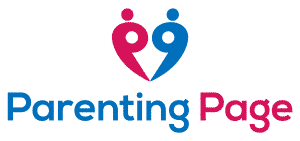Table of Contents
Eggshell parenting describes a style where children tiptoe around their parents’ moods and behaviours, often avoiding interacting to prevent emotional outbursts. These children modify their actions and words carefully, as if walking on eggshells, fearing their parents’ reactions.
Eggshell parenting typically stems from a child’s anxiety about triggering anger or rejection from their parent, leading them to accommodate inappropriate behaviour.
The impact of eggshell parenting can be significant for both parent and child. Children raised this way may develop difficulties with self-esteem, self-worth, and forming relationships, which are valuable skills needed throughout life. Parents often report being frozen out and ignored by their children in later life.
Defining Eggshell Parenting
Eggshell parenting describes a harmful family dynamic where children must be extremely careful about their behaviour, words and actions to avoid triggering a parent’s negative reactions. This parenting approach creates an atmosphere of tension and fear within the home, forcing children to constantly monitor themselves.
Key Characteristics of Eggshell Parenting
Eggshell parenting is marked by intense emotional volatility from the parent figure. Children learn to tiptoe around topics, emotions, or situations that might cause a parental outburst.
The parent’s emotional state becomes the central focus of the household, with children developing hypervigilance to detect mood shifts. These children become emotional weather forecasters, constantly scanning for signs of brewing storms.
Unpredictability forms another cornerstone of this damaging pattern. Children never know which version of their parent they’ll encounter from one moment to the next.
A severe lack of emotional safety pervades these homes. Children’s feelings are often dismissed, minimised or even punished, teaching them that their emotional needs don’t matter.
Privacy violations are common as well. Eggshell parents may read diaries, check phones, or interrogate their children about personal matters, creating an atmosphere of constant surveillance.
Origins and Historical Context
The term “eggshell parenting” draws from the legal concept of the “eggshell skull rule,” which states that you take your victim as you find them. Similarly, children in these households must adapt to their parent’s fragile emotional state.
This parenting pattern often stems from intergenerational trauma. Many eggshell parents experienced similar upbringings themselves, perpetuating cycles of emotional harm without awareness.
Mental health conditions can contribute to this dynamic. Untreated mood disorders, personality disorders, or substance abuse problems may heighten a parent’s reactivity and unpredictability.
Cultural factors sometimes play a role in normalising these behaviours. Some societies value strict parental authority and discourage questioning parents, which can mask the harmful aspects of eggshell dynamics.
The recognition of eggshell parenting as problematic is relatively recent, coinciding with greater understanding of childhood emotional development and trauma in the late 20th century.
Common Signs and Behaviours
Children in eggshell households develop distinct coping mechanisms. They become hyperaware of subtle emotional cues and learn to shrink themselves to avoid conflict.
These children often shoulder inappropriate responsibilities for managing their parent’s emotions. They feel compelled to keep the parent happy at all costs.
Role reversal frequently occurs, with children comforting and caretaking for the parent instead of receiving care themselves. This premature emotional burden disrupts normal development.
Communication patterns reveal much about these dynamics. Conversations are riddled with landmines, and children learn which topics are forbidden to discuss.
Physical signs include tension headaches, stomach problems, and sleep disturbances in children. The constant stress creates genuine physiological responses.
When away from the eggshell parent, these children might exhibit either extreme compliance or rebellious behaviours. Both responses stem from the same root of emotional insecurity and anxiety.
Psychological Impacts on Children
Eggshell parenting creates significant psychological consequences for children as they develop. These effects often manifest in anxiety disorders, boundary issues, and emotional challenges that can persist into adulthood.
Development of Anxiety and Insecurity
Children raised by eggshell parents typically develop heightened anxiety levels. They learn to constantly scan their environment for potential threats or parental disapproval, creating a persistent state of alertness. This hypervigilance becomes exhausting and prevents them from feeling safe in their surroundings.
Their self-confidence suffers as they internalise the message that the world is dangerous and that they lack the capability to handle challenges. These children often become risk-averse, fearing mistakes and avoiding new experiences that might trigger parental worry.
Separation anxiety frequently emerges as these children fear leaving their protective parents. They may struggle with independent activities like sleepovers, school trips or even playing outside without supervision. This dependence can limit their social development and prevent the formation of healthy peer relationships.
Effects on Consent and Boundaries
Children of eggshell parents often develop confused understandings of personal boundaries. When parents consistently override their choices in the name of protection, children fail to develop a strong sense of bodily autonomy and personal agency.
These children may struggle to recognise when their boundaries are being violated by others. Having had their own preferences routinely dismissed, they may not recognise that their consent matters in relationships.
Paradoxically, some children may swing between being overly compliant and rebellious. They might surrender their boundaries entirely with some people while becoming rigidly defensive with others. This inconsistency reflects their lack of internal guidance about appropriate boundaries.
Without practice in expressing preferences and setting limits, these children often grow into adults who struggle with saying “no” in personal and professional settings. Their desire to please others frequently overrides their own needs and comfort.
Long-Term Impacts: Depression and Resentment
The constant message that they cannot manage risks independently often leads to learned helplessness in children of eggshell parents. This psychological state contributes to depression as children grow older and face increasing life challenges.
Suppressed anger and resentment commonly develop as these children recognise the opportunities they missed due to parental overprotection. This bitterness can damage the parent-child relationship in adolescence and adulthood.
Many adult children of eggshell parents struggle with decision-making. Having had limited practice making choices and experiencing consequences, they may feel paralysed when facing important life decisions.
Some develop a pattern of seeking approval before taking action, while others may reject guidance entirely, swinging to the opposite extreme. Either response reflects the lack of balanced decision-making skills that develops under eggshell parenting.
Parent-Child Communication Patterns
Communication in eggshell parenting contexts takes on distinctive patterns that affect both parent and child. These patterns are characterised by heightened sensitivity and blurred boundaries that shape how family members interact with each other.
The Role of Hypervigilance in Communication
Hypervigilance forms a core element of communication in eggshell parenting relationships. Parents constantly scan for potential threats or problems, creating an atmosphere where every word is analysed for hidden meaning.
Children quickly learn to read subtle facial expressions and tone shifts. They develop a sixth sense for detecting mood changes in their parents, often before the parents themselves are fully aware of them.
This watchfulness extends to the children’s own communication. They carefully filter their words to avoid triggering negative reactions. Simple conversations become exercises in caution.
The long-term impact includes difficulty with direct communication. Both parties often rely on hints rather than clear requests, leading to misunderstandings and unmet needs.
Enmeshment Versus Separation
Eggshell parenting typically creates enmeshed communication patterns where boundaries between parent and child become fuzzy or non-existent. Parents may view their children as extensions of themselves rather than separate individuals.
Communication in these families often lacks privacy. Parents might read diaries, monitor social media, or listen to phone calls under the guise of protection. This invasiveness reinforces that independence is unsafe.
Children struggle to develop their own voice in such environments. Their opinions, especially those that differ from their parents’, are frequently dismissed or criticised.
The path toward healthier communication requires establishing clear boundaries. This involves recognising where one person ends and another begins, respecting privacy, and allowing for differences in perspective.
The process of separation can be challenging but necessary. It allows children to develop communication skills they’ll need for future relationships beyond the family system.
Supporting Families and Healing Approaches
Recovery from eggshell parenting requires intentional interventions that address both the parents’ and children’s needs. Effective approaches focus on rebuilding trust, reducing anxiety, and establishing healthy communication patterns within the family unit.
Therapeutic Interventions
Family therapy offers a structured environment for addressing the patterns that contribute to eggshell parenting. Cognitive Behavioural Therapy (CBT) helps parents recognise unhealthy thought patterns that fuel controlling behaviours and anxiety.
Trauma-informed therapy may be particularly valuable when eggshell parenting stems from the parent’s own childhood experiences. These approaches acknowledge how past wounds affect current parenting styles.
Support groups connect parents with others facing similar challenges, reducing isolation and shame. Many parents report that hearing others’ stories helps them feel less judged and more motivated to change.
For children, play therapy provides a safe space to express feelings about walking on eggshells at home. Art therapy and narrative techniques allow children to process their experiences without direct confrontation.
Building Healthy Consent and Communication
Establishing clear boundaries forms the foundation of healing from eggshell parenting dynamics. Parents can start by practising simple consent-based interactions around everyday activities.
Learning to recognise and respect a child’s “no” in age-appropriate contexts builds trust. This might begin with small choices about food preferences or clothing selection, gradually expanding to more significant decisions.
Active listening techniques help parents move away from reactive patterns. These include:
- Making eye contact
- Reflecting back what was heard
- Asking clarifying questions
- Avoiding interruptions
Mindfulness practices can help parents notice rising tension before it escalates. Taking a pause when feeling triggered allows space for thoughtful responses rather than emotional reactions.
Children benefit from having their feelings validated even when parents disagree with their choices. This validation reduces the anxiety and resentment that often accompanies eggshell dynamics.


https://www.investagrams.com/Profile/codepr3582440
Your comment is awaiting moderation.